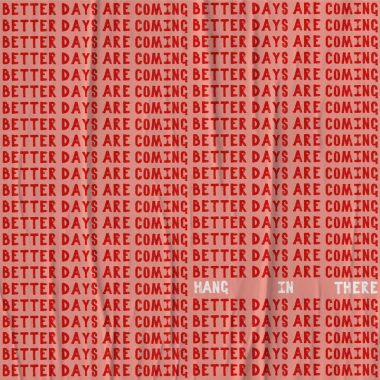Picking up the pieces after Covid-19

I started my day working from home like I start every day: with a cuppa. Mashed and milky, just how I like it. Sadly, on carrying it up the stairs to my desk, I somehow managed to send the mug somersaulting into the air and its steaming hot contents cascading across the walls, myself, and my white carpet.
For a minute, I didn't move. I just stared at the chaos around me. I think they call it being in shock. Then, I burst into tears. All in all, it was a good five minutes before I finally pulled myself together, went to change out of my tea-sodden trousers, and got a towel.
When I eventually made it to my desk (fresh cuppa in hand), I started to think about how my reaction to this event wasn't dissimilar to how I and many others have reacted to the lockdown, albeit it to a different degree.
When the lockdown was first announced, we were all pretty stunned. Even though coronavirus had been a topic in the news for some months, it still seemed to suddenly become a 'thing' – a very real and dangerous thing – within a matter of days. For some time, we were all in a state of shock, staring blankly at the chaos around us, almost pinned to the spot in fear of the unknown and terrified of unintentionally making the situation worse.
Then came the anger and the frustration and the devastation. Surrounded by this mess that was entirely out of our control – the economy, broken families, grief, isolation – most of us probably asked the same question: will life ever be the same? During the tea incident, I genuinely questioned whether I would have to empty my savings to recarpet my entire staircase. Looking back now, it sounds ridiculous and extreme, but when you're in that place you find yourself asking all kinds of big, scary questions. Can things ever be the way they used to be after all this? How do we move forward? Why did this have to happen?
Finally, we get to the clean-up stage – the stage I think most of us are probably in right now. We're all doing our best with the resources we have, making the most of it, and very slowly life is starting to get back to some semblance of normality. But it's not quite there yet. No matter how hard we clean, there's still a faint stain on the carpet. Maybe it will never completely go away. Maybe we'll just get so used to this new way of life that one day we'll barely remember the normal before 'this normal'.
For now, we must give ourselves grace and continue to be patient. I know for many of us the 'local lockdowns' and increased restrictions in places across the UK have been incredibly frustrating, added into the mix just when we felt like we were getting somewhere. But at least now we're better prepared and better equipped to deal with the situation. I know if I were ever to throw my entire mug of tea in the air again, I'd know what products get the stain out and I'd be much quicker to start cleaning up. It may feel demoralising but we're all learning – and that's a good thing.
The Message translation of Ecclesiastes 7:8 says, 'Endings are better than beginnings. Sticking to it is better than standing out.' Every day – whether it feels relentlessly challenging or mostly uneventful – is a day closer to the end of all of this. The verse goes on to say, 'On a good day, enjoy yourself; on a bad day, examine your conscience. God arranges for both kinds of days so that we won't take anything for granted.'
So get yourself a cuppa (try not to spill it – it's a real pain to clean up) and be proud of yourself for making it this far.
Gemma is a Senior Copywriter for Christians Against Poverty (CAP). The charity, launched in 1996, works with local churches across the UK to release families from grinding poverty while sharing the good news of Jesus.











